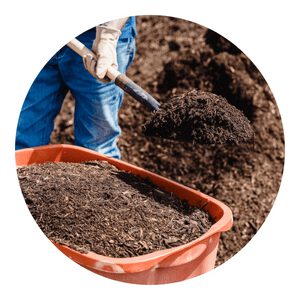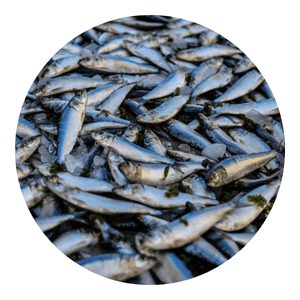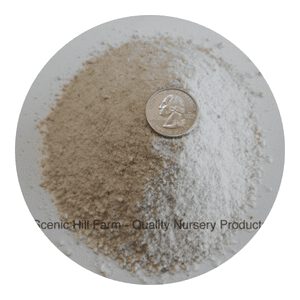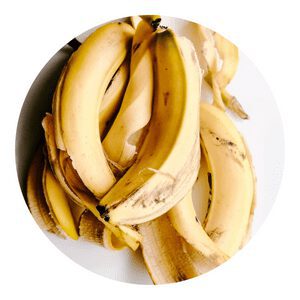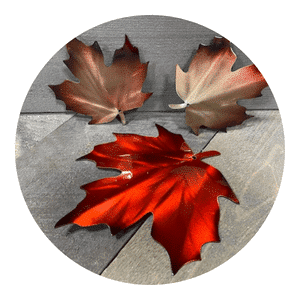Eggshell Organic Fertilizer
Eggshells are a common household item that can be used to create organic fertilizer.
Eggshells are rich in calcium, which is an essential nutrient for plants.
To create eggshell fertilizer, simply grind up the eggshells and mix them with soil.
This fertilizer can be used on both indoor and outdoor plants.
Eggshell fertilizer is a great way to recycle household waste and give your plants the nutrients they need to thrive.
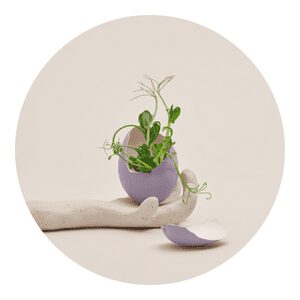
Eggshell Menu
What is eggshell fertilizer and why use it?
Eggshells are an excellent source of organic fertilizer for gardens.
They provide nutrients that plants need, including calcium, which helps prevent blossom end rot in tomatoes.
Eggshells also help regulate pH levels in the soil, making it more hospitable for plants.
To use eggshells as fertilizer, simply crush them and sprinkle them around the base of your plants.
For best results, do this once a month. Eggshells will eventually break down and improve the quality of your soil.
Eggshells
What they are made of and how they benefit plants
Eggshells are an excellent source of organic fertilizer for plants. They are high in calcium and other minerals that are essential for plant growth.
Eggshells can be used as a top dressing for potted plants or added to the compost pile.
When tilled into the soil, eggshells help to improve drainage and aeration while also adding essential nutrients to the soil.
Eggshells can also help to deter pests such as slugs and snails from eating your plants. Simply scatter eggshells around the base of your plants.
If you have a lot of eggshells, you can make a tea out of them by steeping them in water for a few days.
This eggshell tea is rich in nutrients and can be used to water your plants or as a foliar spray.
How to make eggshell fertilizer
Eggshells are not only a great way to compost, but they can also be used as an organic fertilizer for your plants.
Here’s how to make eggshell fertilizer:
1. Save your eggshells in a container and let them dry out.
2. Once they’re dry, crush the shells into small pieces.
3. Mix the crushed shells with some water to create a slurry.
4. Pour the slurry into your garden bed or potting soil and mix it in well.
5. Water your plants as usual and watch them grow!
Eggshells are an excellent source of calcium, which is essential for plant growth.
By using eggshells as fertilizer, you’ll be giving your plants a boost of nutrients that will help them thrive.
Eggshells are rich in calcium, which is great for your plants. Using eggshells as organic fertilizer is a sustainable and natural way to give your plants the nutrients they need. Eggshells improve drainage and aeration in the soil, while also providing essential nutrients. So next time you make breakfast, save those eggshells and use them to give your plants a boost!
Chappy The Gardener
How to use eggshell fertilizer
Eggshells are a great source of organic fertilizer for your garden.
Here’s how to use them:
1. Eggshells can be used whole or crushed. If using whole eggshells, place them in a sunny spot to dry out for a few days before using.
2. Eggshells can be added directly to the soil or compost pile. If adding to the soil, bury them about an inch deep.
3. Eggshells can also be used as a top dressing on plants. Simply sprinkle them around the base of the plant and lightly rake them into the soil.
4. For best results, crushed eggshells should be added to the soil or compost every two to three months.
Pros and cons of using eggshell fertilizer
Organic gardeners love using eggshells as fertilizer because they are high in calcium, which is great for tomatoes and other calcium-loving plants.
Eggshells also help to deter slugs and snails.
The main downside of using eggshells as fertilizer is that they take a long time to break down.
It can take up to two years for them to fully decompose. This means that you need to plan ahead if you want to use eggshells as fertilizer.
Another potential problem with using eggshells as fertilizer is that they can attract animals like rodents and dogs. If you have pets, make sure they can’t get to the eggshells.
Which plants like eggshells for fertilizer?
Organic gardeners have long known that eggshells make an excellent fertilizer for plants.
But which plants like eggshells the most?
Here are a few of our favorites.
Tomatoes
Tomatoes love eggshells as fertilizer. Eggshells provide nutrients that tomatoes need and help to improve drainage and aeration in the soil.
They also add calcium, which is essential for tomato plants.
To use eggshells as fertilizer, simply crush them into a powder and sprinkle around the base of the plant.
You can also add them to the compost pile. Eggshells are a great way to recycle and they’ll give your tomatoes a boost!
Eggplant
When it comes to growing eggplants, using eggshell organic fertilizer can give your plants the extra nutrients they need to produce bountiful fruits.
Here’s a step-by-step guide on how to use eggshells as organic fertilizer for eggplants:
1. Collect eggshells from cooked eggs and let them dry out completely.
2. Once the shells are dry, grind them into a fine powder using a coffee grinder or food processor.
3. Mix the eggshell powder with an equal amount of compost.
4. Apply the fertilizer mixture around the base of each plant, being careful not to get any on the leaves.
5. Water the plants thoroughly after applying the fertilizer.
6. Repeat this process every month throughout the growing season.
Eggshells are rich in calcium, which is essential for healthy plant growth.
Broccoli
When it comes to growing broccoli, using eggshell organic fertilizer is a great way to give your plants the nutrients they need.
Eggshells are a natural source of calcium, and they also help to aerate the soil.
Here’s how to use them:
1. Collect eggshells from your kitchen and let them dry out completely.
2. Once they’re dry, you can either crush them up or leave them whole.
3. For each square foot of garden space, add 1/2 cup of eggshells to the soil.
4. Mix them in well and water regularly.
5. You can also add crushed eggshells directly to the planting hole when you’re setting out your broccoli plants. Just make sure to mix them in well with the surrounding soil.
Cauliflower
Cauliflower may not be the first thing that comes to mind when you think of eggshells, but this strange vegetable can actually be used as a type of fertilizer.
Eggshells are rich in calcium, which is an essential nutrient for plants. When used as a fertilizer, eggshells can help to improve the structure of soil and promote healthy plant growth.
To use cauliflower as a fertilizer, simply place eggshells around the base of your plants. You can also add them to compost or mix them into the soil before planting.
For best results, crushed eggshells should be added to the soil at least once a month.
If you have a lot of eggshells to dispose of, consider using them to fertilize your garden.
How do you make organic fertilizer with egg shells?
Eggshells are a natural and easy way to fertilize your garden.
All you need is some eggshells and some water.
To make your eggshell fertilizer, start by boiling the eggshells for 10 minutes. This will kill any bacteria that may be present on the shells.
After boiling, let the eggshells cool and then grind them into a powder using a coffee grinder or food processor.
To use, mix 1 tablespoon of eggshell powder with 1 gallon of water. Apply this mixture to your plants every two weeks.
Eggshells are high in calcium, which is essential for plant growth. This natural fertilizer will help your plants grow strong and healthy!
Do eggshells make plants grow faster?
Eggshells are an excellent source of organic fertilizer for plants. They are rich in calcium and other minerals that plants need to grow.
Eggshells also help improve drainage and aeration in the soil.
To use eggshells as fertilizer, simply crush them up and mix them into the soil around your plants. You can also add crushed eggshells to your compost pile.
Eggshells take a long time to break down, so be sure to add them early in the composting process.
Adding eggshells to your garden is a great way to give your plants a boost. Not only do they provide essential nutrients, but they also improve the structure of the soil.
So next time you have some eggshells left over from breakfast, put them to good use in your garden!
What is the NPK of eggshell?
For many gardeners, finding new and innovative ways to fertilize their plants is a top priority.
One such method is using eggshells as organic fertilizer.
Eggshells are an excellent source of nutrients for plants, including calcium, nitrogen and magnesium.
In fact, broken down egg shells on average contain 39.15 percent calcium, 0.4 percent nitrogen and 0.38 percent magnesium.
Eggshells can be used in a number of ways to fertilize plants.
They can be crushed and added directly to the soil, or they can be used to make a liquid fertilizer by steeping them in water for a few days.
Whichever method you choose, your plants will benefit from the extra nutrients provided by eggshells.
In conclusion,using eggshells as organic fertilizer is a great way to Recycle them.
It is also an inexpensive way to give your plants the nutrients they need.
Eggshells contain calcium, which helps to build strong cell walls in plants.
They also help to regulate pH levels in the soil and can improve drainage.
Lastly, eggshells can deter pests such as slugs and snails. So, the next time you make eggs, save those shells!
Click To Grow
Helps Us Grow – Share If You Like











